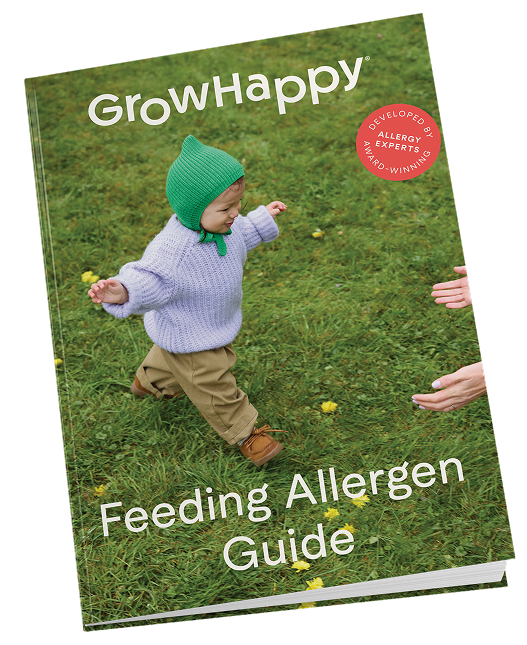Since the late 1980s, food allergies in children have risen by 50% and nut allergies have doubled! On average, two kids in every classroom have a food allergy today. Why the increase?
-
Many experts believe old feeding recommendations to avoid food allergens in infancy inadvertently contributed partially to the increase. The unproven hypothesis then was that we should give allergens once the immune system is more developed. However, our Professor George du Toit’s landmark LEAP and EAT-On studies with his colleagues showed us that it’s best to introduce allergens Early & Often™ to teach the immune system that allergens are just nourishing foods. The goal is to get these foods down the GI tract as soon as the baby can eat solids, from 4 months old, when developmentally ready.
-
The rise of food allergies may be linked to the rise in eczema. Around a third of children have eczema today, and 75% of food-allergic children have eczema, so it is a top risk factor for later developing food allergies too. Although genetics play into the development of eczema, there are many other factors at play for the increase in eczema today. For example, we bathe our children far too often and often with chemical compounds, which many experts believe is compromising their skin’s barrier. Yes, hygiene is important at every age, and daily bathing can even help eczema patients once they have it, but bathing excessively can turn into a risk factor with the wrong products and techniques (e.g. rubbing harshly and scrubbing on the skin). The goal is to bathe in a way and with products that don’t strip the skin of natural oils and that keeps the skin’s natural microbiome intact. We want the skin’s microbiome to flourish, with protective microbes that contribute to its barrier function.
- Our lifestyles have become incredibly sterilized, yet we have the same immune system that demands to be challenged during development. We need a bit of “vitamin dirt” as my friend Stefanie would say. We are lucky to have such a clean society, and in many ways it has helped progress our world from disease, yet inadvertently, we are not challenging the immune system enough. We live in a cement society with less time digging in the dirt.









